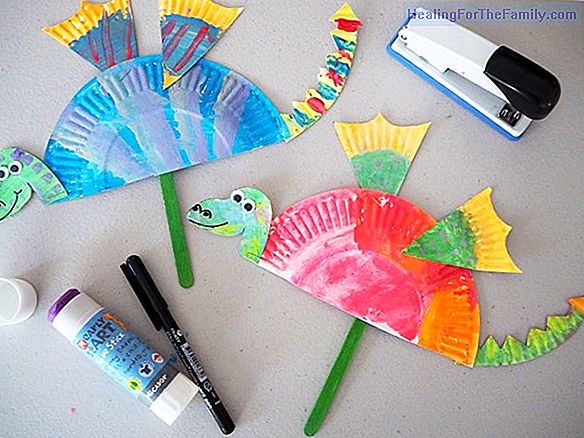The 7 mistakes of parents when they pay their children
Pay is a good resource for children to learn to manage their expenses, to save money and to be responsible with money management. Pay, when properly applied, can represent an incentive and motivation for children. However, the financial educator Reinaldo Domingos reveals the seven main mistakes that
Pay is a good resource for children to learn to manage their expenses, to save money and to be responsible with money management. Pay, when properly applied, can represent an incentive and motivation for children. However, the financial educator Reinaldo Domingos reveals the seven main mistakes that parents make when they pay children, in his last book 'Pay is not only money'.
The children's pay is not only money

It is recommended that children begin to receive pay between 8 and 10 years, since at that age the child can already understand the value of certain amounts of money. On the other hand, parents should be careful not to make those 7 mistakes:
1. Imbalance
The child should not keep all his money. It is necessary to separate 50 percent of what you earn for your daily consumption. Parents should give him the right to buy something the child wants, without it being excessive eating. Incredible as it may seem, a rigid discipline that parents impose at home, can get to turn their children into obsessive children with money. In the future they may become greedy people.
2. Loan
Parents can not, in any way, use the money that the child tries to keep as a loan. This recommendation may seem absurd, but there are many cases where parents or guardians take something from the child's piggy bank, or remove some amount of money from their savings book to pay household expenses or even for private use.
3. Break
Parents should never skip the steps of effort and growth of their child. They should never buy the object for which the child dreams before he can raise the money to acquire it. This will make the child record that example for the rest of his life. The idea is to make him fight to conquer what he wants. El 4. The permission
Learn to say no, for the good of the child. When pay is implemented, it is common for children to spend all the money before the month ends. Remember that they are learning and they will surely ask for more money when it is finished. That is a good opportunity for them to learn the consequences of their actions.
5. No limits
Pay can not be used as a reward or as a punishment. There are parents who, on impulse, decide not to pay for a period of time because of bad behavior or bad grades of the children. Or, give the pay because the son did some domestic activity. The payment must be respected and never be converted into a currency of exchange or "negotiation" between parents and children.
6. Remuneration
Pay is not a salary. Salaries are paid to those who work and the child can not and should not work. This is one of the concepts that should never be ignored so that everything becomes very clear. The salary is a salary, pay is pay.
7. Retention
Adults should teach their children from the beginning that everything we buy should come with the bill, from a chocolate bar to a bicycle. So you should not set a bad example for your children, negotiating a purchase invoice to get a discount.












